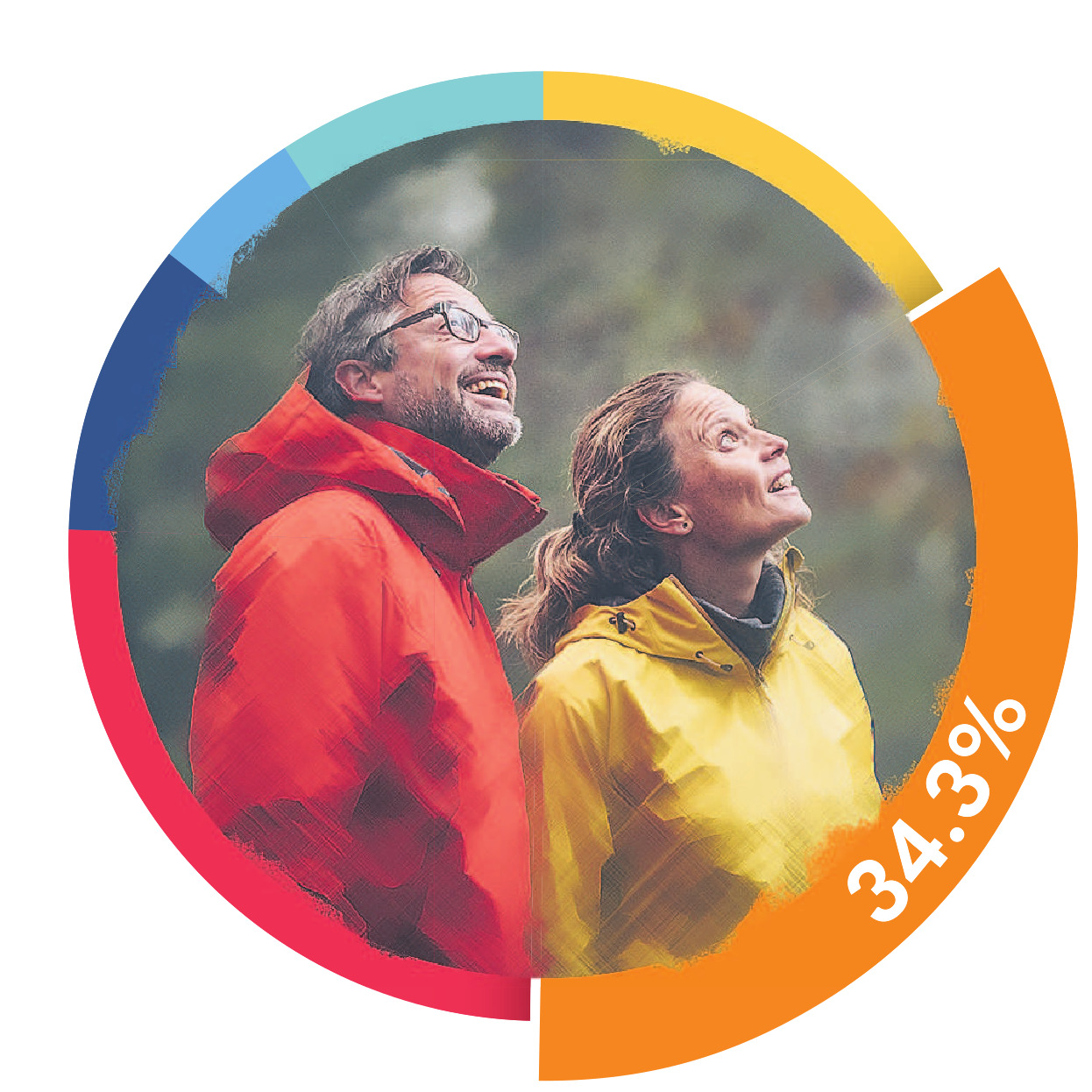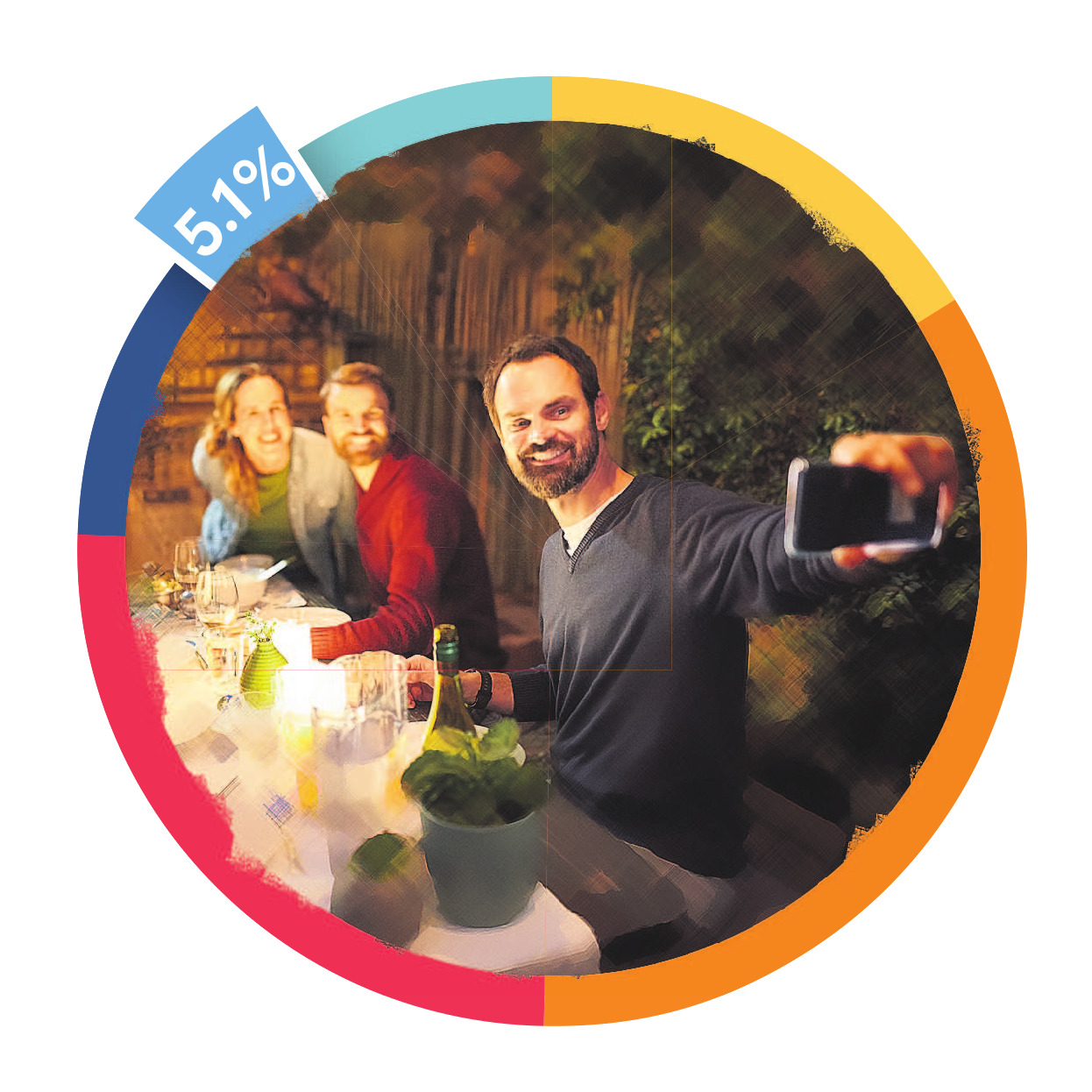There are six types of New Zealanders, a nationwide Consumer Lifestyles Survey reveals. Who are they? How have Kiwi values and behaviours changed over time? And why are Contemporary New Zealanders on the rise, while New Greens and Success Driven Extroverts have disappeared? Bruce Munro takes a look.
A new type of New Zealander is emerging.
In 2021, this group is only 5% of the population in a country dominated by Educated Liberals and those with Traditional Family Values. But it appears the star is rising on Contemporary New Zealanders’ values and behaviours, says Assoc Prof Leah Watkins, who is lead researcher on the just-released New Zealand Consumer Lifestyles Study.
The study, by the Marketing Department at the University of Otago, is the seventh in a five-yearly cycle that began in 1979. Delayed by last year’s Covid-19 lockdown, the late-2020 survey asked 1640 New Zealanders 350 questions exploring the lifestyles, consumption patterns and choices, and behavioural trends of Kiwis.
Released last week, the survey study shows 73% of New Zealanders are satisfied with their lives as a whole but only 25% say their families are better off financially than they were a year ago. Half of New Zealanders (50%) say they are committed to a sustainable lifestyle and 13% say they are likely to switch to a hybrid car within a year.
Seventy percent say they stick with products and brands they like and 45% buy or sell online at least once a month. Almost three-quarters of the population (71%) think obesity is a serious problem in New Zealand. Fifty one percent rely on friends and family as their most important sources of information.
Since Covid, 43% say they have reduced their consumer spending, 26% say they have reduced debt, 35% have increased saving and 24% have increased investing.
By comparing the latest data with previous surveys, the study shows how Kiwis have changed and suggests what our future values and behaviours will be, Prof Watkins says.
The study identifies six consumer lifestyles: Financial Strugglers, Traditional Family Values, Educated Liberals, Uncertain Young, Contemporary New Zealanders and the Disengaged.
Although a small group, Contemporary New Zealanders are a glimpse of the future, Prof Watkins says.
Contemporary New Zealanders are most likely to be in their mid to late 30s. They are the most ethnically diverse of the six consumer lifestyles and have a relatively high income. This segment has high levels of life satisfaction and has strong political and environmental opinions. They like to socialise, keep busy through exercise and enjoy the outdoors.
"The Contemporary New Zealander segment suggests a cultural transition towards a more multicultural perspective and a wider concern for a better world," Prof Watkins says.
"We would expect to see this segment increase, as they represent many of the trends identified broadly — increasing social responsibility, greater diversity, a global perspective."
During the past five years, New Zealanders’ values and behaviours have continued to shift.
"Emerging trends identified in 2015, such as greater protection of the environment, increased responsibilities of business, more liberal attitudes and more sustainable consumption, have strengthened and become more mainstream."
New Greens, who were 8% of the population in 2015, have disappeared because their defining, progressive values are now held by several lifestyles, especially Educated Liberals and Contemporary New Zealanders.
An overall decrease in materialism has seen the demise, or rather the evolution, of 2015’s Success Driven Extroverts and Young Pleasure Seekers.
"The new segment, Uncertain Young, is reflective of these earlier segments, but without the focus on the acquisition of possessions. Similar to the earlier segments , they make the most of experiences and, generally, are not strongly politically or socially motivated."
The study’s researchers plan to build a more detailed picture of how Kiwis have changed during the past four decades, since the surveys began.
"This is a piece of work we will undertake, but broadly speaking [New Zealanders are] less materialistic, more conscious about the environmental impacts of consumption and with increased expectations that business should contribute to the social good."
Pick a piece of pie: the six 2020 Kiwi consumer lifestyles. Which consumer lifestyle most closely matches how you think, live, spend money and allocate time?
 EDUCATED LIBERALS, 34.3%
EDUCATED LIBERALS, 34.3%

This is the largest segment at just over one-third of the total sample. Individuals are likely to be in their early 50s and this is the segment with the lowest percentage of Maori. They have the highest income of all the segments, enjoy high levels of satisfaction in life, value integrity, independence, and believe New Zealand is a good place to live. They are materially well-off and not driven by expressions of materialistic status. They enjoy socialising, keeping active and like to exercise outdoors frequently. They like to tramp, enjoy the arts and like to go to the theatre, ballet and concerts about once a year. They like to stay up to date with world current events through online news and reading books.
Demographics
Older (mean age 51.1), highest income. Likely to have a university education.
 FINANCIAL STRUGGLERS, 16.2%
FINANCIAL STRUGGLERS, 16.2%

They are in their early 40s, and have the lowest income of all segments with many being temporarily unemployed. They are characterised by the lowest levels of life satisfaction, including satisfaction with their standard of living, personal relationships and their sense of achievement. They report price as the major decision-making factor in purchases, would like to be able to consume more sustainable products and support the introduction of a standardised system of labelling for environmentally friendly products. They disagree that they are financially better off than a year ago, are concerned the gap between rich and poor is growing and would like more government intervention in the economy. In particular, they would like to see more government spending on social welfare and education.
They generally take part in few social or active leisure activities and are dissatisfied with their personal health. They download videos and read books but do not consume other media frequently.
Demographics
Likely to be in their early 40s (mean age 42.6). Lowest income of all segments and least likely to be better off financially than the previous year. Most likely to hold only school level qualifications.
 CONTEMPORARY NEW ZEALANDERS, 5.1%
CONTEMPORARY NEW ZEALANDERS, 5.1%

Contemporary New Zealanders are the smallest segment of the sample, and are likely to be in their mid to late 30s. They are the most ethnically diverse segment and have a relatively high income. They have the lowest percentage of temporarily unemployed individuals and are the most likely to be working full time. They exhibit high levels of satisfaction in life and have strong political and environmental opinions. They value equality and compassion and feel that the government should take stronger measures to protect New Zealand's environment and economy. They are the segment most aware of the United Nations’ Sustainable Development Goals and the most active in their sustainable consumption behaviours. They are the most likely segment to agree they are better off financially than they were a year ago and are content with life in New Zealand. They like to socialise, value community, entertain at home once a month, like to keep busy through exercise and enjoy outside activities. They are likely to seek entertainment through listening to music, online gaming and watching television and movies. They have an interest in the arts and like to go to the theatre, concerts and the ballet once a month.
Demographics
Mid to late 30s (mean age 36.9), ethnically diverse (Pakeha 37.1%, Maori 21.3%, other 41.6%). They are likely to have a university qualification.
 UNCERTAIN YOUNG, 10.1%
UNCERTAIN YOUNG, 10.1%

The Uncertain Young are in their late 20s and include the highest proportion of students. They are largely apathetic towards social, economic, and environmental issues. The uncertain young are relatively content with their personal lives, but they are not confident that they are living the ‘‘good life’’ or that New Zealand is a very good place to live. They are somewhat materialistic, do not use price as the most important factor in consumption decisions and agree their working status is important to them. They are very physically and socially active and enjoy playing sports, engaging in outdoor activities and are frequent visitors to events, concerts, movies and the gym. They enjoy entertaining more frequently than other segments. They are regular listeners to podcasts and radio.
Demographics
This is the youngest segment (mean age 28.3), with the highest percentage of students (13%), who are most likely to be single (54.7%). Their educational profile is a mixture of school level and university qualifications.
 TRADITIONAL FAMILY VALUES, 25.3%
TRADITIONAL FAMILY VALUES, 25.3%

The Traditional Family Values segment is a large one, making up one quarter of the total sample.
They are likely to be Pakeha, in their late 50s to early 60s and mostly retired. The segment is characterised by its authoritarian and hierarchical view of society. It is the segment most politically right-leaning, most dissatisfied with the Government and the one that would most like to see more spending on law and order and national security. They are the least concerned with social and environmental issues and would not support government spending or intervention in these areas. They are in favour of marriage and do not think that it is important for women to be in paid employment. Their consumption behaviour suggests they are not motivated by hedonistic purchases and are unlikely to be impulsive in their purchase decisions. They are averse to incurring debt, comfortable with their personal financial circumstances and satisfied that their lives have meaning and purpose. They watch free-to-air TV, read the news online regularly and read magazines once a month.
Demographics
They are the oldest segment (mean age 56.3), who are also likely to be Pakeha (75.3%) and retired (35.3%). They are most likely to hold school level qualifications.
 DISENGAGED, 9.1%
DISENGAGED, 9.1%

The Disengaged are consumers most likely to be in their late 30s, single and temporarily unemployed. They are the segment least likely to feel they are leading purposeful and meaningful lives and they express discontentment with life in general. They are very neutral on social, environmental and political problems but are concerned about their own wellbeing and that of those closest to them. They are relatively content with how life is in New Zealand and do not feel there is much change needed to improve the country.
Socialising and community are not particularly important to them and they do not put a lot of effort into their relationships with others. The Disengaged are not physically active and they are generally low users of media, watching free-to air TV and NZ on demand.
Demographics
They are in their late 30s (mean age 38) and are most likely to be temporarily unemployed (27%). They are likely to have no, or school level, qualifications.
- You can read the report here












